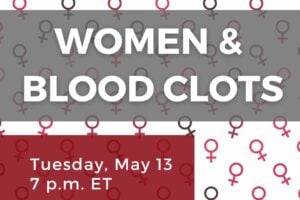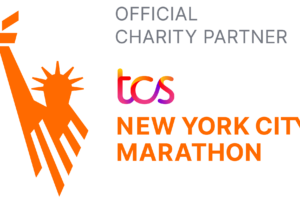Thank you to our patient community for bringing the psychological impact of a blood clot diagnosis to the forefront of discussion among fellow patients and the clinical community.
An overwhelming number of patients turn to the National Blood Clot Alliance (NBCA) in search of mental health resources and support following a blood clot diagnosis.
Many survivors deal with feelings of anxiety, depression, post-traumatic stress disorder (PTSD), or other mental health issues that may interfere with their emotional well-being and quality of life.
However, the potential psychological impact of blood clots is often overlooked at the time of diagnosis and treatment is focused only on the physical symptoms.
In response, the NBCA set out to learn more about the psychological impact of blood clots on patients by launching the CLUES (a Critical Look at Understanding the Emotional Suffering of Blood Clot Survivors) Survey in 2021.
An astounding 3,372 blood clot survivors participated in this in-depth survey, by far the largest ever conducted on this topic. The learnings will help ensure treatment options and resources address and treat the whole patient, both physically and mentally.
Thank you to all the patients who participated. Your voices are helping to change the trajectory of mental health care following a blood clot diagnosis.
The Survey
The CLUES Survey was open to anyone who experienced a deep vein thrombosis (DVT) or a pulmonary embolism (PE), collectively referred to as VTE, to collect information about their physical and mental wellbeing following diagnosis. It addressed many important aspects of post-VTE syndrome to better understand the impact on overall quality of life. The features that were assessed include:
- Dyspnea (shortness of breath)
- Physical pain
- Anxiety
- Depression
- Post-traumatic stress disorder (PTSD)
Of the 3,372 patients that took the survey:
- 75% of participants report feeling moderately anxious or depressed
- 60% of participants report having moderate or extreme pain
- 53% of participants have some or major problems with performing their usual activities
- 40% of participants get sudden feelings of panic quite or very often
The survey also looked at relevant functional limitations following an episode of VTE to better understand the long-term impact on VTE patients.
- 50% of the responders reported moderate to severe functional limitations, which was associated with a higher prevalence of depression, anxiety, and pain.
The complex information collected from this survey is still being interpreted and shared across the clinical community to help inform future treatment guidelines as well as NBCA programs and resources. However, the preliminary data has already led to many clinicians incorporating mental health assistance into their treatment plans for VTE patients.
Ongoing patient participation in studies is critical and will continue providing feedback to improve protocols that enhance patient care in the blood clot community. Thank you again to the CLUES Survey participants for bringing mental health outcomes after a blood clot diagnosis to the forefront.
New NBCA Resources
Following the CLUES Survey, NBCA developed new resources to better support patients in their physical and mental recovery following a blood clot diagnosis, including:
- PEP Talk: Patients Educating Patients is a series of live virtual events that provide education and support on a variety of topics to help guide patients through their blood clot diagnosis and recovery journey.
- Facebook Support Group provides a safe a supportive space where people affected by blood clots and clotting disorders can gather to share information and interact with peers. This online support group has welcomed over 4,400 new members since its inception in January 2022.
- New Patient Guide is a resource for newly diagnosed blood clot patients and their caregivers to help answer common questions and provide support to help navigate life, post-diagnosis. This resource has been featured at several international medical conferences and is distributed to patients and physicians across the country so that newly diagnosed blood clot patients can receive the comprehensive information and resources they deserve.
- Mental Health Guide is for anyone seeking additional support and information to begin their mental health recovery journey following a blood clot diagnosis.
Citation:
Klok, F., Robertson, W., Rosovsky, R., W.(2022). The CLUES Study: A Critical Look at Understanding the Emotional Suffering of Blood Clot Survivors. https://abstracts.isth.org/abstract/the-clues-study-a-critical-look-at-understanding-the-emotional-suffering-of-blood-clot-survivors/
Read more about the CLUES Survey






